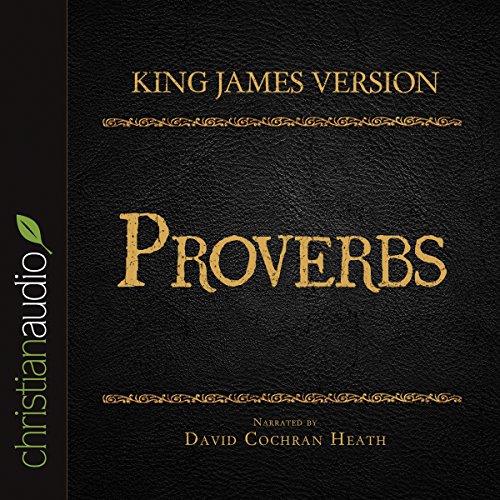The Baha’i Faith, rooted in the teachings of Baha’u’llah, presents an intriguing perspective on scripture and the concept of a singular, unified Holy Book. This unique worldview posits that while multiple religious traditions have emerged throughout human history, there exists a divine blueprint that transcends these disparate narratives, intricately woven into the fabric of existence. The Baha’i conception of scripture invites profound contemplation on the nature of revelation, the authority of sacred texts, and the universality of spiritual truths.
At the heart of Baha’i teachings lies the assertion that all major world religions are essentially “chapters” in a singular divine narrative. This metaphorical framing likens humanity’s spiritual journey to a vast library where each text, each chapter, complements and enhances the entire collection, culminating in a coherent and unified whole. Just as various writers contribute unique perspectives to an anthology, the prophets and manifestations of God—Moses, Jesus, Muhammad, and Baha’u’llah himself—have offered their revelations, which serve as guiding stars in the firmament of human understanding.
This belief in a unified scripture, known as the “Book of God,” emphasizes the need for open-mindedness and spiritual exploration. The Baha’i perspective on revelation is not fundamentally about exclusivity or the absoluteness of one text over another but about the harmonious interplay of divine messages across time and cultures. Each scripture has its own context, addressing the specific needs of its contemporary society, yet all ultimately draw from the same divine wellspring.
In examining the Baha’i view of scripture, one must first explore the notion of progressive revelation. This concept posits that God gradually discloses divine truths to humanity over time, akin to a master painter revealing a masterpiece in stages. Each epochal manifestation serves to build upon the revelations that came before, shedding light on previously obscured truths and offering guidance tailored to the evolving human condition. This evolving tapestry of truth is richly colored by the cultural and societal contexts of each religious figure’s time, encapsulating brilliant hues of wisdom that resonate with the people they are meant to uplift.
Moreover, Baha’i teachings convey the imperative of interpretation. Unlike static texts that lend themselves to rigid literalism, the scriptures within the Baha’i Faith are alive with meaning, calling upon individuals to engage actively in the process of discernment. This active participation is likened to a gardener tending to their plants—nurturing them with care and attention, allowing the flowers of understanding to bloom in each heart. Such engagement calls for introspection, dialogue, and a sincere quest for truth, fostering a community spirit where individuals collectively delve into the vast depths of their spiritual heritage.
Central to this dialogue is the Baha’i emphasis on the unity of religions. The teachings of Baha’u’llah advocate for the recognition of the shared spiritual truths found within diverse religious systems. In a manner reminiscent of distinct musical notes coming together to create a harmonious melody, the Baha’i approach invites followers to appreciate the symphonic richness of various faith traditions. This appreciation encourages interfaith dialogue, understanding, and cooperation, which are vital in transcending the barriers of sectarianism that have historically divided humanity.
The Baha’i writings, particularly those of Baha’u’llah and ‘Abdu’l-Baha, serve as a compendium of profound spiritual insights. Their words offer solace, guidance, and inspiration, emblematic of the eternal truths that have guided humanity across the ages. The concept of “the Most Holy Book,” known as the Kitáb-i-Aqdas, is regarded as a fundamental text within the Baha’i Faith. It encapsulates laws and principles crucial for individual and communal development. Intriguingly, it operates not merely as a rule book but as a charter that promotes spiritual and social transformation through love, justice, and unity.
Baha’i teachings underscore the importance of personal study and interpretation of scripture. Followers are encouraged to delve into the writings with a discerning mind, akin to a miner sifting through the earth in search of precious gems. This personal engagement sparks intellectual curiosity, fostering a deeper connection to the divine and encouraging individuals to integrate these teachings into their daily lives. The scriptures become an intimate conversation, resonating with the seeker’s own experiences and aspirations.
Critical to this exploration is the idea of the synthesis of science and religion—a hallmark of Baha’i thought. The integration of spiritual teachings with scientific inquiry allows for a comprehensive understanding of truth, acknowledging that both dimensions of human experience enrich the pursuit of knowledge. Just as two sides of a coin are inseparable, so too are science and religion, each providing essential insights that contribute to the holistic development of humanity.
As one traverses the landscape of Baha’i teachings, it becomes clear that the Faith invites an expansive understanding of scripture. It implores followers to recognize the interconnectedness of all faiths and the universal truths that arise therein. This profound perspective has the potential to transform not only individual hearts but also collective societies, fostering an environment of peace, understanding, and cooperation among all peoples.
In conclusion, the Baha’i view of scripture is an intricate tapestry that celebrates the unity of divine revelation and the shared spiritual heritage of humanity. It invites us to embark on a pilgrimage of the spirit, exploring the profound depths of sacred texts while maintaining an open heart and mind. Through the lens of progressive revelation, interpretation, and interfaith dialogue, Baha’is endeavor to illuminate the path toward a more harmonious existence—one that resounds with the echoes of divine wisdom, nurturing the seeds of love, justice, and understanding within every human soul.
